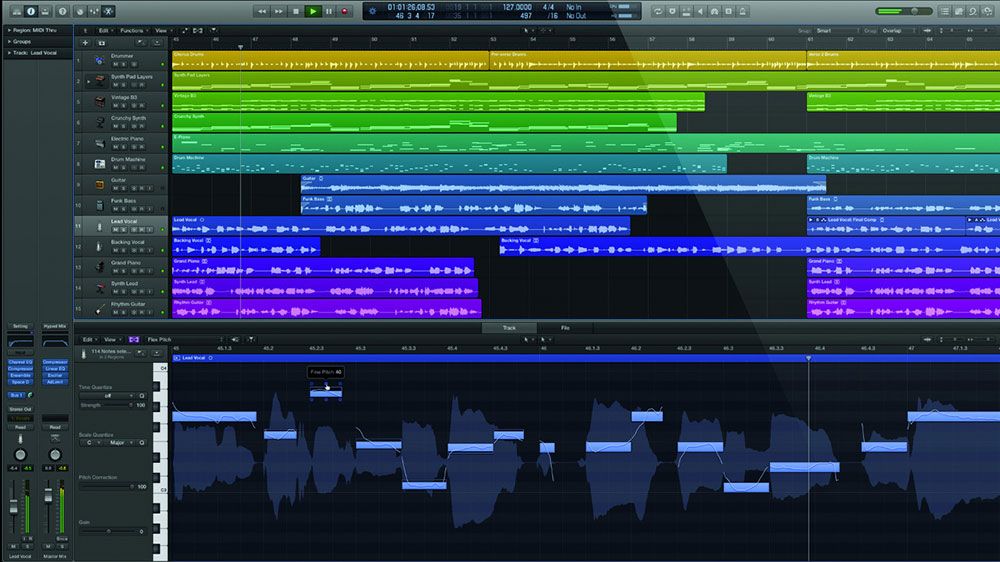Comparing FL Studio 20 and Logic Pro X. Both FL Studio 20 and Logic Pro X give you the best tools and effects to create music. And here is where they differ. It used to be that FL Studio was only for PC users while Logic Pro was for Mac users. Today, Mac users have the option to use FL Studio 20 with its native Mac support.
- Fl Studio Pro Torrent
- Logic Studio 9 Download Free
- Mac Fl Studio Or Logic Pro Free
- Mac Fl Studio Or Logic Pro X
Deciding which recording software to use can be overwhelming at first. In this article we will analyze which DAW is best for you, depending on your preferences.
To make things a little bit easier we have reduced the list of DAWs to 6: Pro Tools, Cubase, Logic Pro, Ableton Live, Reason, and FL Studio. First of all, your OS will determine if you can use Logic or not. So if you are using a PC you can forget about using it, however, there are still 5 great options left (read more about Mac vs PC for music production here).
To make a good decision you should ask yourself 4 questions. What type of projects will you work on? Where will you work? How do you like to work? Are you planning on using external plugins?
What type of projects will you work on?
This is an important question because there are some sequencers that work better for certain styles and others that are more versatile for multiple styles. So depending on what type of projects you are going to work with you can decide which program is better for you. For instance, if you are going to use the DAW for EDM then Ableton Live, Reason, or FL Studio would be a good choice. If you plan on recording some vocals, however, you may have a hard time working with them. Although they allow audio recording the features are very limited, especially on Reason and FL Studio.
Fl Studio Pro Torrent
If your main goal is to record and mix audio, then Pro Tools, Logic Pro or Cubase would be a great choice. In my opinion, Pro Tools is more focused on audio recording and processing and Cubase or Logic Pro have a more versatile combination MIDI/Audio. Although the three of them have advanced features on audio and MIDI depending on your needs you may prefer one or the other.
Where will you work?
Any DAW will work fine in your studio, but some are more prepared for external recording. For example, Ableton Live is designed to create music in your studio and also in live sessions, this gives you a lot of versatility to record and improvise. This can be a huge advantage if you work with electronic music, and that’s why Ableton Live is one of the top DAWs for EDM.
How do you like to work?
This can feel like a silly question, but it’s not. Some programs like Reason, FL Studio, or Ableton Live work using loops, for example, you start creating drum loops, then you create a bass loop, a synth loop, etc. You can copy and paste those loop tracks through the song very easily to extend the song, but creating new loops is a bit messier once the project becomes bigger. For instance, in FL Studio you can only have 1 loop per line in the song view. That makes it easier to add that loop anywhere you want but can make your project huge if you have a lot of different loops for the same instrument. This way to work is obviously designed for electronic music because loops will tend to repeat with maybe slight changes, this is not very useful for other styles that keep changing more often.
Are you planning on using external plugins?
Usually, you’ll say yes, or maybe… Each DAW uses a different plugin format and some plugins won’t be available for all of them.
Pro Tools uses AAX, which are usually more expensive, Logic Pro allows AU plugins, Cubase, Ableton Live and FL Studio work with VST plugins and Reason only allows for Rack Extensions with a more limited library. VST is probably the most extended format and this can be an advantage.
Choose the DAW that is best for you.
Choosing a DAW is a matter of personal taste, but after reading this article I’m sure you will be able to make a good decision. So, if you’re planning to work only with electronic music and with little audio recording, then go for Ableton Live, FL Studio, or Reason. But if you’ll have a different type of project, or you plan to open a recording studio in the future and record other artists, you should go for Cubase, Pro Tools, or Logic.
Post image under Creative Commons License by David Podosek
 Previous5 Easy Tips For a Better Mix
Previous5 Easy Tips For a Better MixLogic Studio 9 Download Free
Mac Fl Studio Or Logic Pro Free
You can install Audio Units plug-ins from manufacturers other than Apple to process audio in Logic Pro, GarageBand, and Final Cut Pro. When installed, Audio Units plug-ins appear as individual components in the Library folders on your Mac:
Mac Fl Studio Or Logic Pro X
- In the Finder choose Go > Go to Folder, enter '/Library/Audio/Plug-Ins/Components' into the Go to Folder field, then click Go.
- You can also check the Library in your Home folder. In the Finder choose Go > Go to Folder, enter '~/Library/Audio/Plug-Ins/Components' into the Go to Folder field, then click Go.
Built-in effects and instruments included with Apple apps like Logic Pro, GarageBand, MainStage, and Final Cut Pro don't appear in the Library folders and can't be removed manually.



